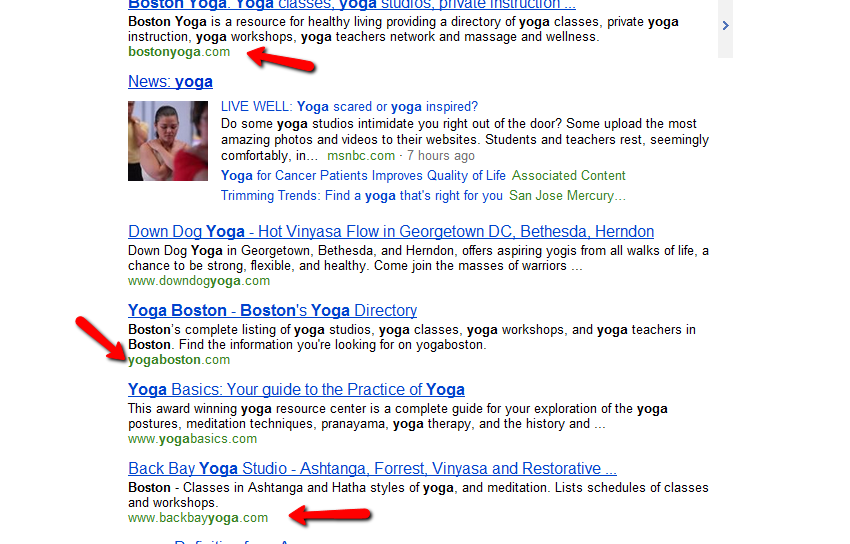Brafton has reported that Bing's search volumes increased 29 percent in 2010, and it seems the company is coming out with new features in an effort to attract even more searchers. Bing announced that it now offers users tailored results based on an individual's location and previous search history, and marketers may want to optimize sites accordingly.
Bing says its new local feature caters to the 76 percent of the population that plans trips and events using search engines. The company used to require searchers to include local information if they wanted insight on nearby results, though Bing Maps always offered local listings related to queries. Now, Bing will serve locally relevant results directly in the body of search pages.
For example, a Boston-based search for “Yoga” in the new Bing prioritizes Boston listings on the first page of search results, with BostonYoga.com placed in the top five results.

In addition to offering locally conscious results, Bing says it will cater to the 30 percent of “navigational” queries, in which users have a specific site in mind. The company will use search history to “re-find” the results that have been most relevant to a specific user in the past.
Marketers may take Bing's updates as a cue that they should optimize their sites for local searchers if they hope to catch clicks from the growing number of Bing users – and from users of other leading search engines.
Bing's personalized search features seem somewhat similar to Google's new offerings now that Hotpot-enhanced results are available to general searchers. As Brafton has reported, the Hotpot-enhanced search options offer local-friendly results that have been recommended by users' friends. Additionally, Google offers results based on what users have liked in Hotpot in the past. Of course, unlike the Google offering, Bing is not requiring users to sign into a social service in order to receive its personalized results.



